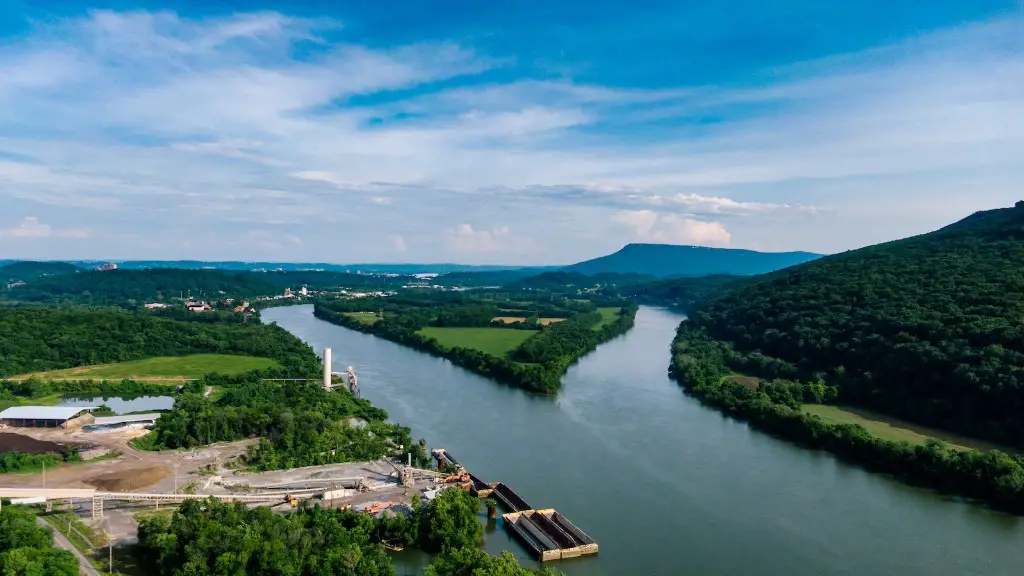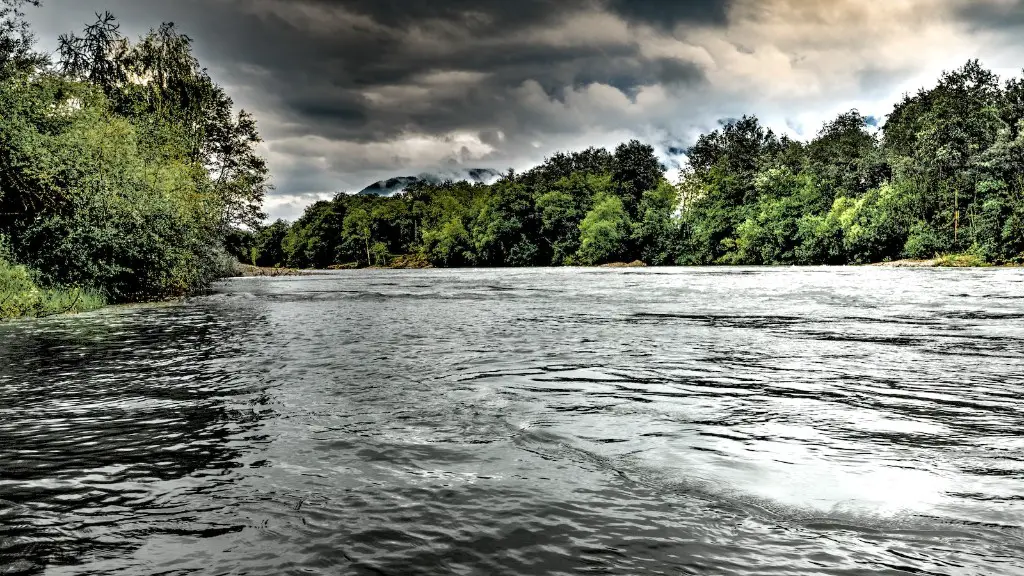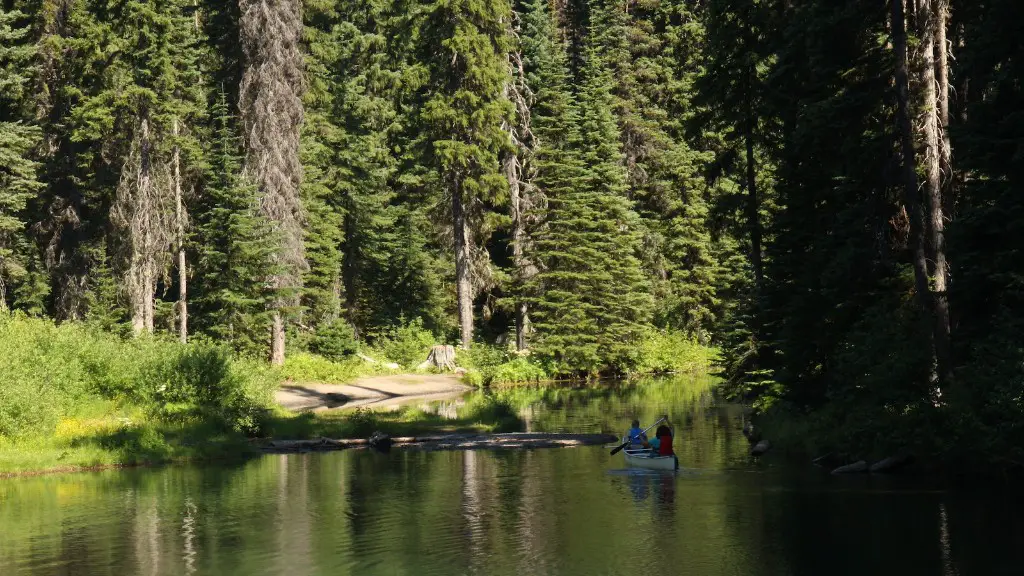In the United States, the Mississippi River is among the longest, most historic, and culturally significant waterway. Spanning an incredible 2,320 miles from its source in Lake Itasca in Minnesota to the delta in Southern Louisiana, Mississippi River is a force of nature that has provided its banks with an incredible array of life and an ever-changing landscape for its entire existence. In addition to its physical significance, the Mississippi has had a major impact on the people who live near its banks and in its watershed. The speed of the Mississippi River has been an integral part of its history, with locals using its speed to their advantage throughout the years.
The Mississippi River has different speeds in various sections, as certain elements like terrain, river width, and human engineering affect its current. In sections of the Mississippi with relatively narrow channels or shallower areas, speed can reach up to 3.2 miles per hour, with many areas seeing speeds around 2.5 miles per hour. As one moves downstream, the river usually quickens and speeds nearer the Gulf Coast can average around 5 miles per hour. But things can be much faster. In grand rapids, or shallower areas, the water can reach speeds of up to 8 miles per hour, making it important to take necessary precautions and follow the navigation charts found in the river resources.
In modern times, the speed of the river is largely governed by human intervention, such as the use of artificial jetties and spurs that can help to to slow the river’s flow and help to prevent flooding in the surrounding area. Historical records have noted that the speed of the Mississippi can be slowed down if there is an increased amount of sediment in the river, effectively clogging it up, or a decrease of actual river volume from various factors, like a period of extreme dryness during the summer.
The Mississippi is also home to one of the strongest currents in the country. Some of these powerful currents can push boats, debris, and other items along the river at tremendous speeds, posing a challenge to any boaters or river users looking to negotiate the river. With its large size, the Mississippi River typically offers boaters and travelers a relatively safe trip as long as they’re aware of their surroundings and exercise caution. It’s also important to stay aware of the river’s speed, as it can change quickly with the weather and terrain, as every ripple and eddy can have an effect on your trip.
While the human engineering along the Mississippi certainly has an effect on its speed, the fast-flowing rivers can also be attributed to the geography of the area. The river starts in the north and flows south, and all the while, it is accumulating the millions of additional gallons of water that come with it. As the Mississippi nears the Gulf of Mexico, it is taking on more water, giving it the potential to move at a higher and higher speed. As the amount of water increases, so do the potential currents, creating a safely navigable stream, as long as operators plan accordingly.
Because of the river’s ability to change speeds quickly, there are several things that rivergoers can do to ensure their safety. As a general rule, it’s important for users of the Mississippi to plan ahead, keeping an eye on the water level, current, and possible obstructions in order to make their trip as safe as possible. In addition, it’s essential for rivergoers to dress for the weather and wear the appropriate safety gear, as sudden winds and currents can always pose a danger.
Impact of Mississippi River Speed on Agriculture
The speed of the Mississippi River has had a drastic impact on the way that the area’s agriculture functions. The flow of the river is the key to irrigation, supplying the region with the necessary nutrients and resources to cultivate crops and keep their soil in good condition. The speed of the Mississippi can take this process up or slow it down. When the river flows too slowly, the lack of water can create problems, as nutrient deposits in the soil can cause a shortage of nutrients, as well as kill off crops through root rot.
In addition, slow rivers can lead to higher costs for both crops and infrastructure, as the cost of maintaining reservoirs, pumps, and irrigation systems can increase significantly.Also, when the river is flowing slowly, it can cause the water to accumulate, leading to an increase of green, slimy algae that can choke up the river and make it more difficult for farmers to use it for irrigation.
On the other hand, the speed of the Mississippi is also a source of a great opportunity for farmers. The faster the river flows, the lesser the maintenance and repair costs for irrigation systems, and the faster the nutrients get delivered to the soil. Also, the process of irrigation for farmers and their crops is cut drastically, as faster rivers can do the same process of delivering nutrients to the soil in an efficient manner.
In conclusion, the speed of the Mississippi River has always been a key factor in the success of the area’s agriculture. While too slow of a flow can cause potential problems, maintain higher costs and create algae to choke up the river, a faster river can open up multiple opportunities and make the process of irrigating fields and crops more efficient.
Implications of Mississippi River Speed on Tourism
The speed of the Mississippi River also has implications for the area’s tourism industry. The slower flow of the river can be a safer environment for travelers as it gives them more time to react to any unexpected changes or obstacles that may arise. The slower flow of the river can also be more aesthetically pleasing as it affords visitors the chance to take more in, as well as take their time exploring the region.
On the other hand, a faster flow of the river can create some exciting opportunities for those looking for an adventure. It can create an exciting and thrilling experience for travelers, as the acceleration and deceleration of the river can surprise. Also, faster flows can present a challenge, as swells and eddies can create powerful currents that thrill seekers may look to take on. It can also create the potential for record-breaking rafting trips or simply leisurely excursions to take in the power of the Mississippi.
For local conservationists, the speed of the river can be a blessing or a curse depending on the situation. For example, while fast-flowing rivers help to keep oxygen content at a healthy level, the increased current can lead to erosion faster than the sediment in the river can be replaced. As a result, some of the local wildlife can be impacted by the disruption of the habitats that lie along the river.
In conclusion, the speed of the Mississippi River can have a significant impact on the area’s tourism industry. Travelers can choose between a tranquil and slow-moving river or an exciting and thrilling one, depending on their individual desires. Along with the potential hazards faced by local wildlife, it’s important that travelers respect the river and follow all safety guidelines while they are visiting the area.
Economic Impact of Mississippi River Speed
The speed of the Mississippi River has a direct impact on the economic well-being of the area. The river has functioned as a mode of transportation for exported goods for hundreds of years. Historical records show that the speed of the river was a key factor in the success of the area’s economy, as boaters and ship workers could quickly move materials for production between cities and waterways.
For industries located along the river, the speed of the Mississippi River is an important factor as well. Many industries use the river to power factory and mill facilities with hydro electricity, while others rely on the river’s speed to help transport their finished products down the river to their customers. In areas like the Port of New Orleans, the speed of the river is vital to the success of their businesses and can make the difference between profit and loss.
In addition, the speed of the river can have an impact on the cost of living as well. When the river’s speed is slower, the cost of shipping items down the river is substantially higher as it takes more fuel and effort to travel the same distance. This in turn can lead to higher prices for everyday goods, so it’s essential for residents and visitors to be aware of the speed of the Mississippi.
Conclusion, the speed of the Mississippi River has been an integral part of the area’s economy since the earliest days of its founding. For those living along the banks of the river, it’s essential that they be aware of its speed and current, as it can have a direct and immediate impact on their livelihoods, businesses, and cost of living.
Environmental Impact of Mississippi River Speed
The speed of the Mississippi River can also have an effect on the environment in the area. The river currently has to deal with issues like wastewater discharge, runoff from industrial sites, and the excessive runoff from fertilizers used along its banks. The speed of the river can play a role in how quickly or slowly these pollutants are able to flow through the waters.
If the flow of the river is too slow, then pollutants will be able to accumulate and eventually cause problems like algal blooms and dead zones. On the opposite side, if the river is flowing too quickly, then the pollutants may not be able to settle and will be carried away without being properly filtered, potentially resulting in serious environmental damage downstream.
Also, the speed of the Mississippi River can have an effect on the local wildlife as well. When the river’s speed slows down, it can create an abundance of food for fish and other aquatic creatures as nutrients settle in the waters. On the other hand, when the river is flowing quickly, the water can take away some of the essential food supplies for local species, making it an important factor for the health of the local ecosystem.
In conclusion, the speed of the Mississippi River has a direct impact on the environment of the area. It’s important for riverwatchers to be aware of the river’s speed, as it can affect the area in numerous ways. Too slow and pollutants may not be properly filtered, while too fast and vital food supplies may be washed away.





